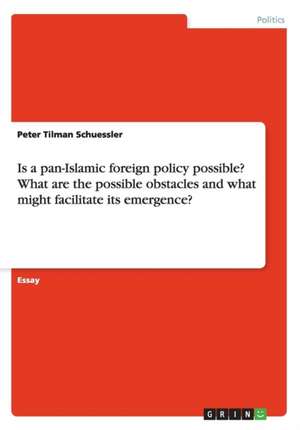Is a pan-Islamic foreign policy possible? What are the possible obstacles and what might facilitate its emergence?
Autor Peter Tilman Schuessleren Limba Engleză Pamflet – 11 iun 2012
Preț: 58.71 lei
Nou
Puncte Express: 88
Preț estimativ în valută:
11.23€ • 11.75$ • 9.33£
11.23€ • 11.75$ • 9.33£
Carte tipărită la comandă
Livrare economică 29 martie-04 aprilie
Preluare comenzi: 021 569.72.76
Specificații
ISBN-13: 9783656211020
ISBN-10: 3656211027
Pagini: 16
Dimensiuni: 148 x 210 x 1 mm
Greutate: 0.04 kg
Ediția:3. Auflage
Editura: GRIN Publishing
ISBN-10: 3656211027
Pagini: 16
Dimensiuni: 148 x 210 x 1 mm
Greutate: 0.04 kg
Ediția:3. Auflage
Editura: GRIN Publishing
